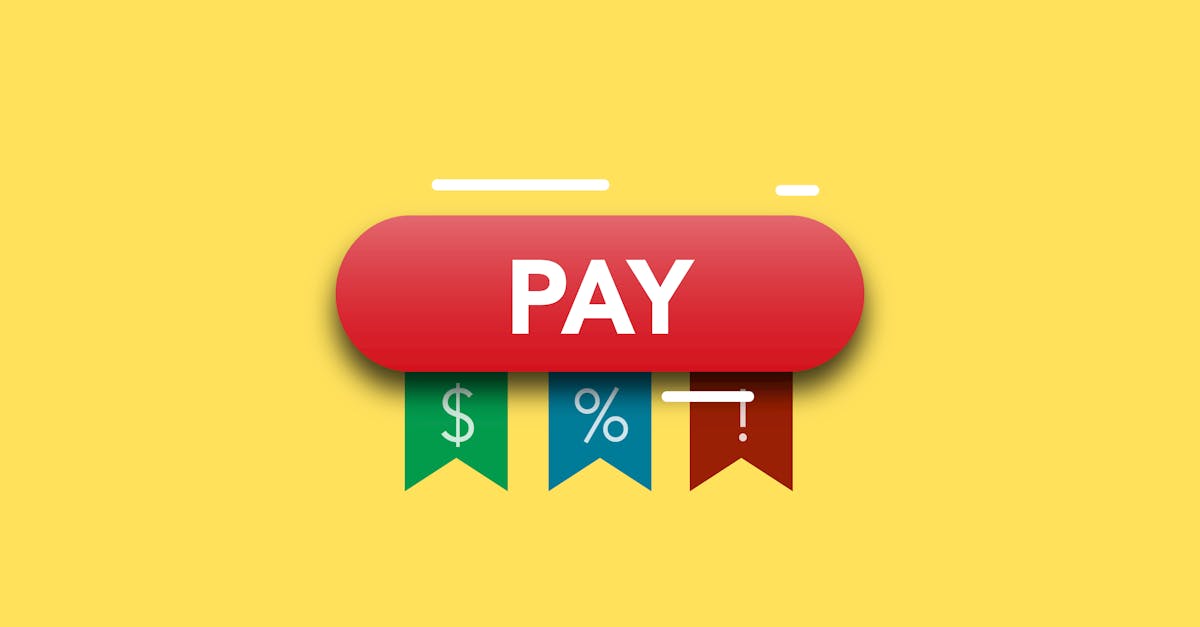Monthly Insurance Payments: Necessary Obligation?
Does insurance have to be paid every month?

Have you ever found yourself pondering the necessity of monthly insurance payments? The financial obligations that come with insurance can sometimes feel burdensome, prompting questions about flexibility and alternatives. In this article, we will delve into the intriguing world of insurance premiums and payment structures to provide clarity and empower you with knowledge on these vital costs.
By exploring the dynamics of insurance payments, we aim to equip you with insights that will demystify managing this aspect of financial planning. Expect to uncover strategies for optimizing your insurance expenses, navigating different payments options, and ultimately gaining a deeper understanding of how to effectively manage your financial responsibilities without compromising on the protection that insurance affords. Join us on this enlightening journey as we unravel the complexities surrounding monthly insurance payments and empower you to make informed decisions for a secure financial future.
Understanding Insurance Premiums
Insurance premiums are the amount of money you pay to an insurance company in exchange for coverage and protection. These premiums are typically paid on a regular basis, such as monthly, quarterly, or annually. The cost of your premium is determined by various factors, including your age, health status, driving record, and the type of coverage you choose.
It's essential to understand that insurance premiums are not fixed and can vary based on risk factors and market conditions. By paying your premiums on time and maintaining a good relationship with your insurance provider, you can ensure that you have the financial security and peace of mind that comes with being adequately insured. Remember, investing in insurance is an investment in your future well-being.
Making Monthly Payments

When it comes to paying for insurance, many policies offer the option of making monthly payments. This can be a convenient way to spread out the cost of your insurance coverage over time, making it more manageable for your budget. However, it's essential to note that some insurance companies may charge a small fee for this convenience.
By opting for monthly payments, you can have better control over your cash flow and ensure that you stay current on your coverage without needing to pay a large lump sum upfront. It's important to set up automatic payments or reminders to avoid any lapses in coverage due to missed payments. Making monthly payments can provide peace of mind knowing that you are continuously protected by your insurance policy.
Types of Insurance Policies
Insurance comes in various forms to cater to different needs and situations. Common types include health insurance, auto insurance, homeowner's insurance, life insurance, and disability insurance. Each policy serves a specific purpose, providing financial protection and peace of mind in times of need
Health insurance covers medical expenses, access to quality healthcare without worrying about high costs. Auto insurance protects against damages and liabilities in car accidents. Homeowner's insurance safeguards your property from unforeseen events like fires or theft. Life insurance offers financial support to loved ones ensuring after your passing. Disability insurance provides income replacement if you are unable to work due to an injury or illness. Understanding the types of insurance available allows individuals to choose the policies that best suit their needs.
Choosing the Right Payment Frequency

When it comes to paying for insurance, choosing the right payment frequency can make a significant difference in your financial planning. Many insurance companies offer various options for payment schedules, such as monthly, quarterly, semi-annually, or annually. It's essential to consider your budgeting preferences and cash flow when deciding on the frequency of payments.
Opting for a monthly payment plan can provide you with more flexibility and convenience in managing your expenses. On the other hand, selecting an annual payment may offer discounts or cost savings in the long run. Take some time to evaluate your financial situation and determine which payment frequency aligns best with your budgetary needs and personal preferences.
Managing Insurance Costs
When it comes to managing insurance costs, there are several strategies you can implement to ensure you are getting the best value for your money. One effective way is to regularly review your coverage needs and make adjustments as necessary. By maintaining a proactive approach, you can avoid overpaying for coverage you may no longer need.
Additionally, bundling your insurance policies with the same provider can often lead to significant savings. Combining your auto, home, and other insurance policies under one carrier can result in multi-policy discounts that help lower your overall costs. Taking the time to explore different insurers and compare quotes can also help you find competitive rates without sacrificing quality coverage.
Exploring Different Payment Options
When it comes to paying insurance premiums, policyholders have a variety of options to choose from. One common alternative to monthly payments is opting for an annual lump sum payment. While this may require a larger initial outlay, it often comes with cost-saving benefits such as discounts or lower interest rates.
Another payment option is a bi-annual or quarterly plan, which allows for more flexibility compared to monthly payments. Some insurance providers also offer automated payment plans, where the premium is deducted automatically from the policyholder's bank account at regular intervals. Exploring these different payment options can help individuals find a method that aligns with their financial preferences and budgeting habits.
Navigating the Insurance Billing Cycle
Understanding the insurance billing cycle is crucial for your payments effectively. The billing cycle typically consists of the policy period, premium due date, grace period, and potential consequences of late payment. It's essential to be aware of these timelines to avoid managing any disruptions in your coverage.
Navigating the insurance billing cycle requires staying organized and keeping track of important dates. Setting up reminders for premium automatic due dates and utilizing payment options can help you stay on top of your payments. By proactively managing your insurance bills, you can ensure smooth sailing in terms of financial responsibility and coverage protection.
Tips for Budgeting Insurance Payments

When it comes to budgeting for insurance payments, it's essential to prioritize your coverage while also being mindful of your financial health. Start by reviewing your monthly expenses and income to determine how much you can allocate towards insurance. Consider setting up automatic payments to ensure you never miss a payment and incur late fees.
Another helpful tip is to explore bundling insurance policies, as many companies offer discounts for combining multiple types of coverage. Additionally, regularly reviewing your insurance policies and comparing quotes from different providers can help you find the best rates and potentially save money in the long run. By staying organized and proactive with your budgeting efforts, you can effectively manage your insurance payments while maintaining financial stability.
Embracing Financial Responsibility
When it comes to insurance payments, embracing financial responsibility is key. By understanding the importance of paying your premiums on time and in full, you demonstrate a commitment to protecting yourself, your loved ones, and your assets. Taking control of your finances and prioritizing insurance payments not only ensures your coverage remains active but also cultivates a sense of security and peace of mind.
Embracing responsibility also involves assessing your insurance needs regularly to ensure you have adequate financial coverage without overpaying for unnecessary policies. By staying informed about your insurance options , comparing rates, and exploring discounts or bundling opportunities, you can make sound financial decisions that protect you from unforeseen risks while optimizing your budget. Ultimately, embracing financial responsibility in managing your insurance payments empowers you to proactively safeguard your future and take charge of your financial well-being.
Conclusion
As we conclude this exploration into the world of insurance payments, it becomes evident that while insurance may typically require monthly payments, there are various factors and options to consider. By understanding the nuances of insurance premiums, choosing the right payment frequency, and effectively managing costs, individuals can navigate the realm of insurance with confidence. Remember, embracing financial responsibility in all aspects of life allows for a sense of security and peace of mind that transcends mere monetary transactions.


